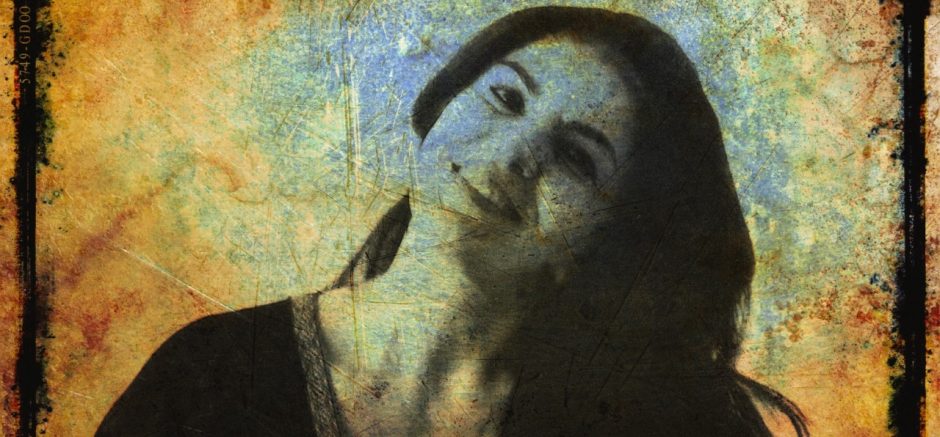A poem is an internal incidence, and a poet cannot say
how she/he has composed her/his poem. A poet may dream
her/his poems, and I believe that true poems are those
that are dreamt by the poet.
I must say of the poem “Death” that I didn’t compose
It just happened in me; in my dream…. And at a
long long times ago… at mythic times… at times when
I perhaps hadn’t yet started to be…
Perhaps I was just a means to come, to tell of this
incident, and to go…. That is all!
But, yes, I know its signs and symbols:
I wrote the “Death” at the sunset of the second day of
an autumn. At that twilight I and my younger sun were
alone at home, and suddenly I felt that the time
froze, and stood in the shape of a dubious ancient man
before me; an ancient man whom I knew and knew not; an
ancient man who has been seen by all the men who have
died (as my grandmother) and will be seen by all those
who have not died yet.
In this poem the “ancient man”, the “time,” and the
“death” are identical.
Dragging us towards our graves all the time, Time
appears in the form of an ancient man who symbolizes
death.
We do not feel the “time” during the days. We are busy
during the days and the time (that ancient man) hides
himself amid the tumults of the life. But during the
nights our mind becomes rather philosophical, and the
ticking of the clock in the silence, particularly,
makes us sober. (The clock slices the time into
minutes and into seconds). Just like a woodpecker-like
steps of that ancient man, pecking at the tree of our
being.
The ancient man’s stare is like a cat’s, because it is
only the cat’s eye that reflects the pass of time in
its pupil. The pupil of the cat’s eye is in the form
of 1 at days and 0 at nights. The time always passes
through the cat’s eyes, but we do not feel it. And the
mouth of death is an endless cavern which devours
everybody, and the only word he knows is adieu; the
bitterest word which is only uttered at partings; and
the death is the beginning of the partings….
And a few words about myself:
I am Iranian, but I came to live in Australia a few
years ago, and I have, just in the ancient Greek
style, one daughter and two sons; Mercedeh, Mazdak,
and Yasna. (Greek people say that you must have
children; a daughter, who is the blessing for the
family, a son for war, and another son for the
mother).
I have an MA in Persian literature and an MA in
General Linguistics, but my favourite course of study
is Mythology. Within the world of myths I find the
world without borderlines, for I (also) think that
myths are collective, depersonalized dreams.
I don’t know when did I start to make poems, but I
know that it is my life that passes alongside poetry,
and not my poetry alongside my life.
I am preoccupied with the concept of time, especially
the cyclic time of the (Eastern) Mysticism, which is
unfortunately unknown to the Western World because of
western materialistic attitude towards life.
Two collections of my poems, namely, “Upon the Silken
Shoulders of the Wind” (Bar Harire Shane-haye- Baad),
and “The Black Cat’s Eyes” (Cheshmhaye Gorbeye Siah)
are under publication.
One of my major preoccupations is child literature. In
this field I have written stories, tales, and songs.
In 1998 I also cooperated with UNISEF in this regard.
My latest work on child literature is the book “Three
Phonies” (Seh Hoggeh-baaz) published by HHA in
Australia, and I am very hopeful for its success. I
wrote the story and my son Mazdak translated it to
English.
I must also say that the poem “Death” is translated by
my friend Alireza Mahdipour.
![]()
